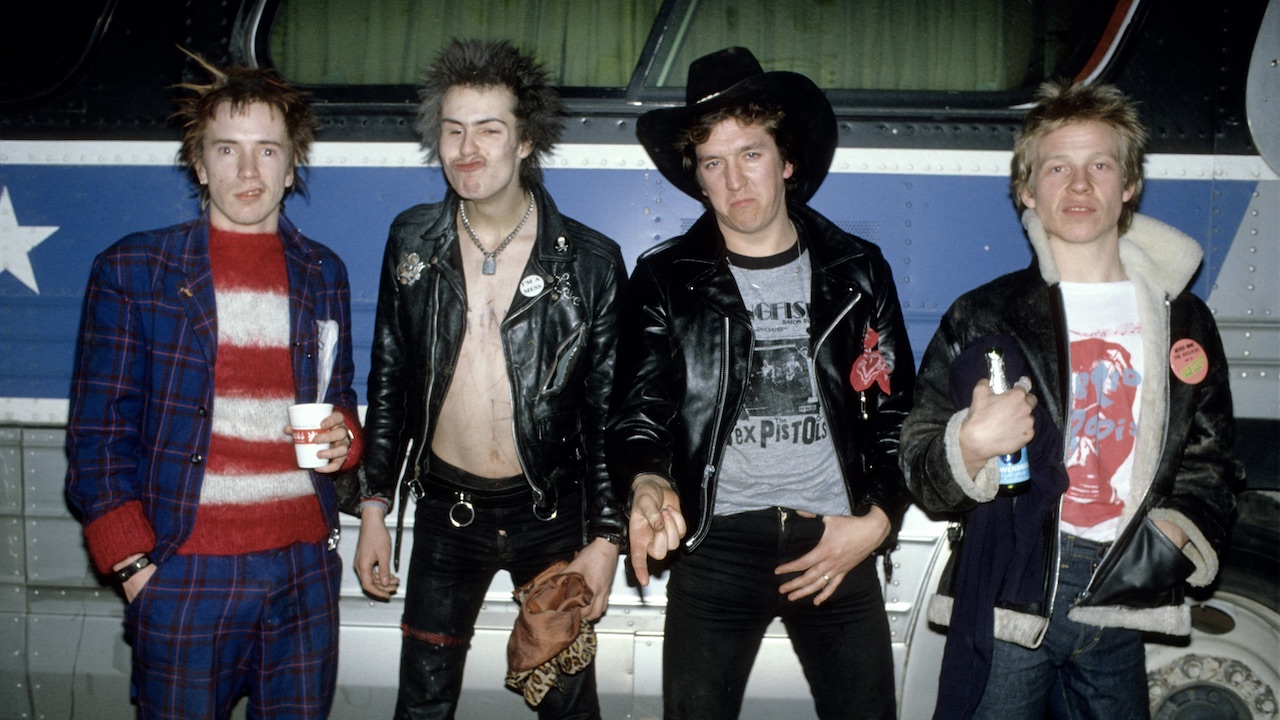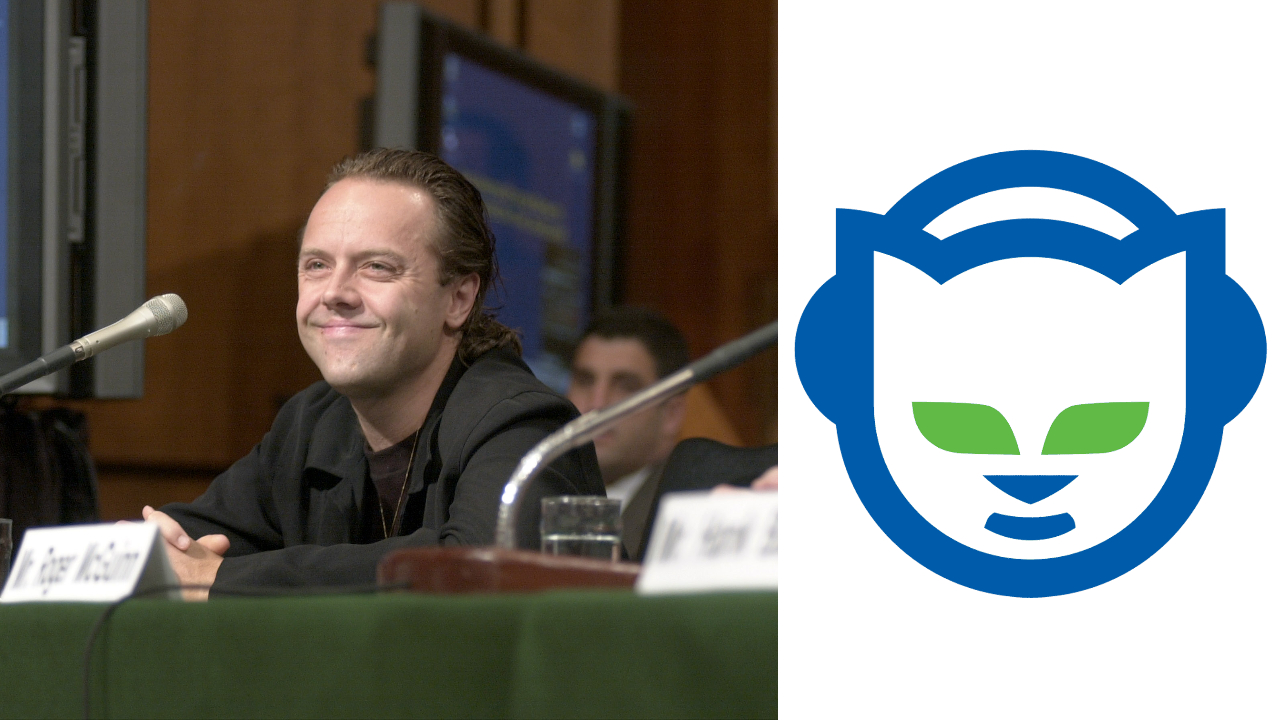"It was ugliness personified": How anarchy, acrimony and apathy killed the Sex Pistols just 78 days after the release of Never Mind The Bollocks
Never Mind The Bollocks, Here’s The Sex Pistols was released on October 28, 1977. Just 78 days later, the band who gave us that thrilling debut was finished. "All of us had been cheated," says John Lydon

It seems incredible to think that when the Sex Pistols released the eternally excoriating Never Mind The Bollocks…, their debut album, they were just 78 days from extinction.
That’s how quickly it happened; vaporised into a cloud of acrimony, embezzlement, addiction and death, that’s how fast the world’s most vilified group flipped from present to past tense. At the end of what would be their final concert for 18 years, at the Winterland Ballroom in San Francisco, on January 14, 1978 singer Jonny Rotten exited the stage with a rhetorical summation that has since become arguably the most famous quote in all of rock’n’roll; “Ever get the feeling you’ve been cheated?”
Decades later, I had the opportunity to ask Rotten ( now answering to his birth name John Lydon) exactly what he meant by this.
“I meant that all of us had been cheated,” he said. “All of us. I meant that this had become a Rolling Stones fiasco, where everyone should be doing better. It was just a monumental fiasco of couldn’t-care-less. I wanted commitment. They were asking what all the fuss was about. Well, the fuss was about the fact that I meant what I said, and I still do. My music means a lot to me.”
On Never Mind The Bollocks, Here’s The Sex Pistols (to give the record its full title), which celebrates its 45th birthday on October 28, it certainly sounds that way.
Never mind that the blueprints for punk rock were drafted in New York City – a pair of concerts by the Ramones in Camden Town in the summer of 1976 helped spread the disease to members of the nascent Pistols, The Clash and The Damned – it was Rotten who gave the movement its voice. And just in case a band whose debut single began with the words “I am an antichrist” weren’t quite bracing enough, the sight of guitarist Steve Jones calling the host of a teatime television show a “dirty fucker” live on air – in the very same week, no less - made the Sex Pistols infamous in an instant.
As the horrified forces of politics, commerce and media united to drive to group into the ground, really, they were doomed from that moment on. Despite outselling their nearest competitor by a factor of two to one, in the summer of 1977 the Sex Pistols’ alternative National Anthem God Save The Queen was kept off the top of the official singles chart by Rod Stewart’s version of The First Cut Is The Deepest.
By the time Never Mind The Bollocks… arrived, gnashing and foaming its way into the world, the band were on their third record label (Virgin), having been ‘dropped’ by nervous patrons at EMI and A&M. As the moral panic began to bite, that year the Pistols were denied even basic momentum. Banned by councils, promoters and venues up and across the country, in 1977 the group were restricted to just a dozen concerts on British soil. "We're not into music, we're into chaos," Steve Jones had told the NME the previous year, and by late '77, playing music played precious little part in the Pistols' day-to-day existence.
With the notable exception of two joyous sets on Christmas Day at Ivanhoes nightclub in Huddersfield, in support of the families of striking firemen, at which Johnny Rotten handed out presents and cake to delighted children, the advent of the group’s debut LP then is best viewed as being the final flare from a dying star. Certainly, the presence of Never Mind The Bollocks… atop the British album chart served only to fuel the group’s many persecutors.
In November 1977, Chris Searle, the manager of the Nottingham branch of Virgin Records, escaped a possible prison sentence after the band’s barrister, John Mortimer – the author of the popular Rumpole Of The Bailey books - successfully argued that “bollocks” was a 19th Century colloquialism for a clergyman. The following day, The Sun announced it ‘astonishing’ that ‘Johnny Rotten and his foul-mouthed Sex Pistols [were given the chance] to put two fingers up to the world’.
The latest news, features and interviews direct to your inbox, from the global home of alternative music.
Really, it was a lot. By the time manager Malcolm McLaren dispatched his fractured charges on a short tour of (mostly) southern states of America at the start of 1978, the train was ready to jump the tracks. With the dope-sick and wholly unmusical Sid Vicious having replaced original member Glen Matlock on bass – oh look, oh no, yet another concussive blow to the group’s stability – the seven-date caravan was defined by dysfunction and violence.
In Memphis, Vicious endured a beating from his security detail after wandering out into the night in the hope of sourcing drugs (depending on the telling, the words ‘I need a fix’ were either written, or else carved, into his bare chest). In San Antonio, the bassist struck a member of the audience over the head with his guitar. Trouble flared in Dallas, and in Baton Rouge. Centre-stage, a flu-ridden Johnny Rotten was coughing up blood.
Asked to describe the experience in 2018, Lydon told me, "Well, you’ve got the horrid scenario with Sid, you’ve got the dreadful Nancy [Spungen, Sid’s heroin-addicted girlfriend] scenario, you’ve got the dreadful Malcolm-in-hibernation scenario [the manager materialised only for the tour’s final date in San Francisco], and you’ve got me, Steve and Paul not talking scenario. And we’re all on the road in America. That’s almost guaranteed not to work…
"We were living completely different lives. And, again, we were being poisoned by the corrosive management who were spreading innuendo, rumours and lies. It was ugliness personified, really, when it should have been about us all getting along with each other."
In truth, they never did learn to get on with each other. Re-united with Glen Matlock on bass, live campaigns in the '90s and noughties were besmirched by divisions, certainly, between the group’s musicians and their singer. In 2018, insisting that the band would never play live again, John Lydon said, "We’d rather be friends than enemies, and I guarantee you that we’d be enemies within 30 seconds of going on tour."
Three years later, after losing a high court case against Jones, Cook and Matlock over the trio's decision to license the Pistols' music for use in Danny Boyle's fact-based TV drama Pistol, he'd rather changed his tune.
"None of these fucks would have a career but for me," he fumed in right-wing tabloid The Sun. "They can all fuck off. I supported them for years and years and years, knowing they were dead wood.”
With friends like this...

Barnsley-born author and writer Ian Winwood contributes to The Telegraph, The Times, Alternative Press and Times Radio, and has written for Kerrang!, NME, Mojo, Q and Revolver, among others. His favourite albums are Elvis Costello's King Of America and Motorhead's No Sleep 'Til Hammersmith. His favourite books are Thomas Pynchon's Vineland and Paul Auster's Mr Vertigo. His own latest book, Bodies: Life and Death in Music, is out now on Faber & Faber and is described as "genuinely eye-popping" by The Guardian, "electrifying" by Kerrang! and "an essential read" by Classic Rock. He lives in Camden Town.
